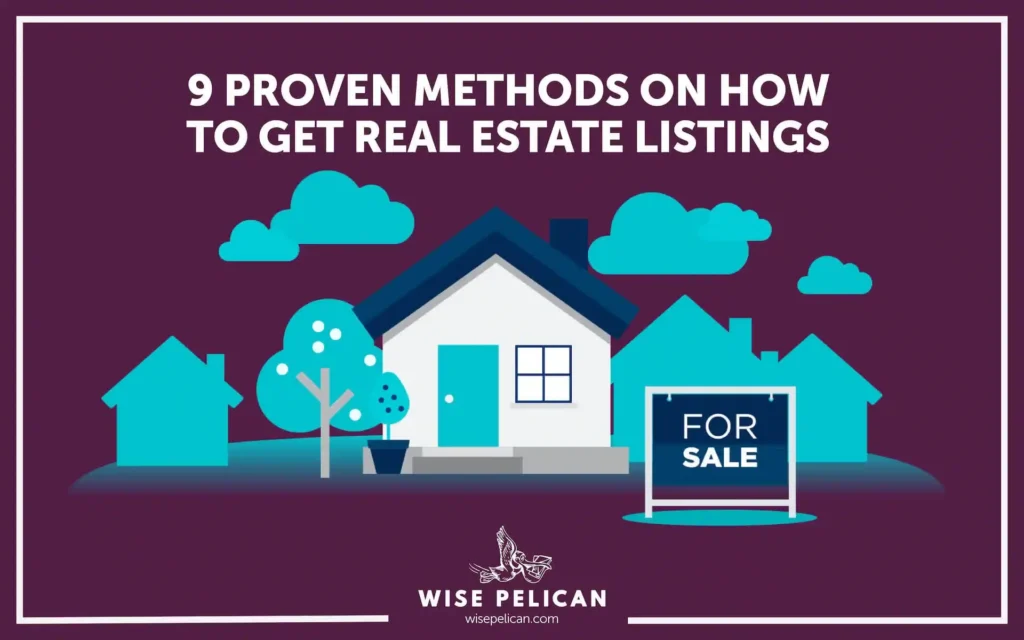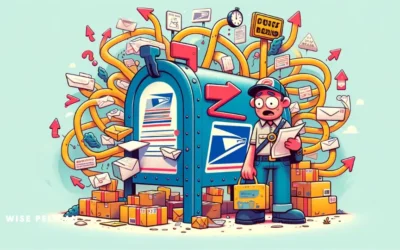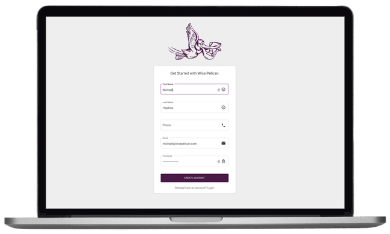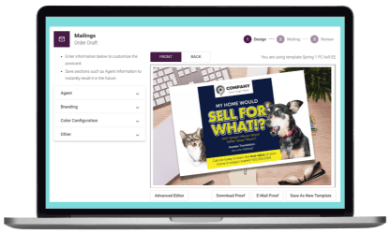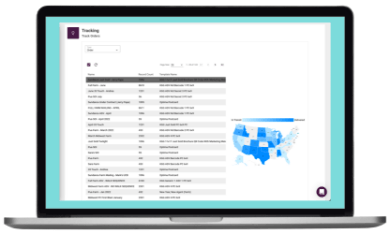If you talk to any experienced real estate agent about the keys to sustainability and success in the industry, they will almost universally delve into the importance of how to get listings in real estate. Both buyers’ representation and sellers’ representation will usually yield the same commission, so why would getting sellers’ listings be so essential to success?
One of the important reasons for focusing on listings is to build brand recognition. When you list a home, your name and headshot are being advertised everywhere the listing is marketed. Keep in mind that both prospective buyers as well as homeowners who are trying to decide when to sell their home look at listings.

Another critical reason is the ability to host open houses. This gives you a chance to meet both curious neighbors and potential buyers. The bottom line is that one listing has the potential to generate many other leads. More than that, the listing helps you to build your database and get your name out there as an experienced and successful real estate agent.
While generating listings is critical, it is often easier said than done. Nonetheless, there are several tried-and-true techniques that successful real estate agents rely on. What should you know about generating real estate listings?

How to Get Listings in Real Estate
Exploring ways on how to get listings in real estate involves various strategies for generating buyer leads. For instance, you can utilize a Google Ads campaign to attract potential buyers. Enhancing your website’s landing page can also be instrumental in acquiring listings. Moreover, effectively managing your listings is essential for generating leads in the real estate industry.
While most buyers want to find a home within a specific school district, a set driving difference from their workplace or in another geo-specific area, they may not be sold on staying within a specific neighborhood or subdivision.
You may spread a wide net to obtain buyer leads, and you may have to canvas a wide area to help those buyers find their perfect home.
Listings, however, are almost exclusively confined to a real estate agent’s own neighborhood or geo farm area. It usually takes time to obtain listings, so a real estate agent will need to focus on establishing and marketing his or her brand within that area. Nurturing leads, such as through a regular direct mail initiative or prospecting, is essential.
A closer look will reveal the most common and effective techniques that real estate agents use to obtain listings.

What Makes Real Estate Listings So Valuable?
At face value, a real estate listing has the same monetary potential as a buyer client. Both generally result in the same commission paid at the end of a successful transaction. In reality, however, listings are far more valuable on several key levels.
Consider, for example, that many sellers have the intention of relocating in the same general area. This means that you could obtain two commissions from that same client.
In addition, as a listing agent, you have the incredible opportunity to get in touch with a client’s neighbors and friends in the same community. For example, you may meet curious neighbors at an open house, or they may contact you after seeing your name on a yard sign. You may even get a few referrals from your seller client.
Part of your farming activities may center on direct mailers, such as postcards announcing new listings or recently sold listings. By using listings in these ways for marketing purposes, you have the opportunity to leverage more value from them and to showcase your expertise in the local real estate market.
While your real estate business will inevitably derive a solid portion of activity from buyers’ leads, the reality is that real estate listings drive buyers’ leads. They are a crucial part of expanding your network, building your brand and increasing your profitability.
Challenges in Obtaining Listings
If obtaining real estate listings was easy, every real estate agent would have a successful career and an easy path toward a high income. In order to obtain a single listing, you must first have the opportunity to present a comparative market analysis and to sell yourself to a client.
You must be one of the handful of real estate agents that a prospective seller calls when he or she is interested in listing their home. More than that, assuming that multiple real estate agents are making their pitch, you must effectively win over that client.
There is Plenty of Competition
Understanding how to get listings in real estate underscores the significance of individual listings, given their immense value. Consequently, competition for listings is abundant within the real estate realm. This competition may entail contending with fellow real estate agents who specialize in farming within your area, as well as competing against referred agents and other industry players.
You must successfully beat most of the other competition in order to have the opportunity to make your sales pitch and to present a comparative market analysis. More than that, you must beat all of the competition in order to earn that listing.
Bear in mind that some of the homeowners who contact you for a comparative market analysis may have not yet decided to sell their homes. After all, they need to learn about their home’s value and market conditions before they finalize their decision.
This means that you may be successful in beating the competition, but you still may not earn a listing. You can spend a considerable amount of time trying to win a single listing.

Patience Is Needed
The process of earning a listing begins well before a homeowner contacts you. As mentioned, most listings are derived from a real estate agent’s farming and prospecting efforts. You may be fortunate enough to obtain a client meeting from your first door-to-door knocking efforts or from your first batch of postcards to a farm area.
However, the true value of prospecting and farming is found through consistent efforts.
Both prospecting and farming generally require multiple touches in order to win a client. You have to offer your listing services at a time when the homeowner is ready to act or at least when he or she may be interested in exploring the options.
The homeowner should be familiar with your name and expertise if you want to be contacted when he or she is looking for a real estate agent or more market data. You could realistically nurture a lead for months or years before you see a listing from your efforts. The bottom line is that being a successful listing agent does not happen overnight. It requires ample patience and a lot of hard work.
A Long-Term Plan Is Essential
An online marketing strategy may be an effective way to obtain multiple buyer leads within a relatively short period of time, but a long-term plan is essential in order to build your business as a listing agent. Generally, you may need to employ multiple techniques in order to build this aspect of your business and to successfully earn listings.
After all, things that are as important as building your brand and establishing name recognition require a considerable amount of time as well as multiple touches.
You can easily annoy prospective clients and could damage your reputation if you do not approach your marketing efforts strategically. Ideally, your farm should hear from you every four to eight weeks. However, your direct efforts could be reinforced by indirect efforts, such as by marketing your brand through a listing’s yard sign.
What are the best approaches to take to build your listing business and ultimately to obtain leads? These are some of the most effective strategies that should be a part of your marketing efforts.

How to Get Listings in Real Estate: Geo Farming
Focusing on a specific geographic area is essential as you work toward earning listings. You need to raise awareness of your brand and create name recognition in order to be contacted by a potential seller. These are goals that take time to achieve and that require regular touches, so it makes sense to focus on building a base within a relatively small geographic area. For example, you may get started by farming your own neighborhood or small suburb.
What does geo farming look like? Marketing to your farm may include handing out brochures, mailing postcards or delivering door hangers to each home in your farm area. Keep in mind that the content that you deliver throughout your farm area should add value. For example, a potential seller may find value in a “just sold” postcard.
This is because it gives the seller an idea of what other homes in the area are selling for. In addition, this type of postcard establishes you as an expert in the community and solicits the homeowner to request a valuation consultation. In addition to “just sold” postcards, you could provide your farm area with sales data for the community, market new listings, announce open houses and more.
Pros
- Builds brand recognition
- Offers value to potential customers
- Establishes yourself as a real estate expert in the community
Cons
- Takes time to reap the full benefits
- Requires a budget for printing and distribution
Who Is Geo-Farming Best For?
Geo farming is a backbone of an effective campaign for listing agents. However, it may not be a great option for you to get started with if you do not have a solid marketing budget to work with.
The true benefits of geo farming are realized when the efforts are consistent, so you should have a regular budget available to maintain consistency. In addition, you should be willing and able to complete regular analysis on your turnover rate and return on investment.

Door Knocking
Another effective way to reach out to your farm is by canvassing the neighborhood with a door-knocking campaign. Essentially, you will go from house to house knocking on the doors. Ideally, you will have a list of prepared talking points as well as a great strategy for breaking the ice.
Many people are not receptive to strangers knocking on their doors, so you may be faced with many slammed doors as well as doors that simply are not opened. On the other hand, this is an effective way for you to introduce yourself and to start building immediate rapport.
When a door does open and the homeowner is willing to talk to you, you could directly answer questions and start portraying yourself as an expert in the real estate market.
Knocking on doors requires a considerable amount of time and energy. You understandably want to be in a great mood and maintain a professional appearance. This is hard to do if you have already knocked on a hundred doors that day.
Because of this, many real estate agents who are successful with this marketing method may plan to knock on a few dozen doors each day rather than try to cover an entire neighborhood in a couple of days.
Pros
- Can be done at minimal cost
- Puts a name to a face
- Enables you to communicate directly and immediately
Cons
- Requires ample time and energy
- Exposes you to many rejections
Who Is Door Knocking Best For?
Knocking on doors is ideal for real estate agents who have more time available to spend on marketing than money. However, this is not a free marketing method. To be most effective, you should plan to at least hand out a business card at each door you knock on.
This method is also best for real estate agents who have thick skin and who will not take rejection personally. Because knocking on doors requires you to establish and build rapport quickly, this marketing method is suitable for real estate agents with exceptional people skills.

Expired Listings
Despite the currently hot housing market, many homes do not sell before the listing agreement expires. You can conveniently mine data on these listings through the MLS. With a bit of research, you can get in direct contact with individuals who are interested in selling their homes and who may be unhappy with their experience thus far.
These are individuals who may be ready to sign with a new real estate agent who promises to take a different approach or who may be more experienced selling homes in the community.
Cold-calling expired listings can be fruitful, but you should expect to make many phone calls to generate one solid lead. For the best results, you should have an effective script prepared. You should also do some research before each call so that you present yourself as experienced and knowledgeable.
Many of these sellers will be interested to hear what you have to say, but be aware that other real estate agents will be calling the same expired listings that you are calling.
Pros
- Homeowners are eager to act
- Focus is on selling the home rather than convincing a seller that now is the right time to sell
Cons
- Requires regular effort for the best results
- Competition for expired listings may be fierce
Who Is Expired Listing Marketing For?
Mining expired listings for hot leads is easier said than done, so real estate agents who are successful with this marketing avenue have both tenacity and self-confidence.
Professionals who excel are willing to put in the time and effort to thoroughly research each expired listing before making a call. Because this marketing activity is almost entirely completed on the phone, having great phone etiquette and a professional demeanor are also essential for success.

Open Houses
Hosting an open house puts you in direct contact with both buyers and sellers. Potential buyers who may not yet be represented by an agent will walk right in to speak with you. This presents you with an amazing opportunity to interact directly with buyers who may be actively searching for their next home.
In some cases, potential sellers will also tour an open house to size up the competition or for other reasons. Often, these are homeowners who are not yet represented by a real estate agent.
You may think that you would need to have an active listing in order to host an open house, but this is not necessarily the case. Many busy real estate agents do not have the bandwidth to hold as many open houses as they would like to for their active listings. They may be happy to let a new or inexperienced real estate agent host an open house for their listings.
Pros
- Direct and personal interaction with both buyers and sellers
- Minimal cost to the hosting agent
- Enables you to showcase yourself as an expert
Cons
- Not all visitors will be interested in buying or selling
- Requires several hours of time, typically on a weekend afternoon
Who Are Open Houses For?
Hosting an open house is a great marketing opportunity for new and inexperienced agents. Specifically, real estate agents who have more time than marketing funds available may do well. In order to pull leads from open house visitors, you must be able to establish solid relationships quickly while also presenting yourself as an experienced, helpful professional.
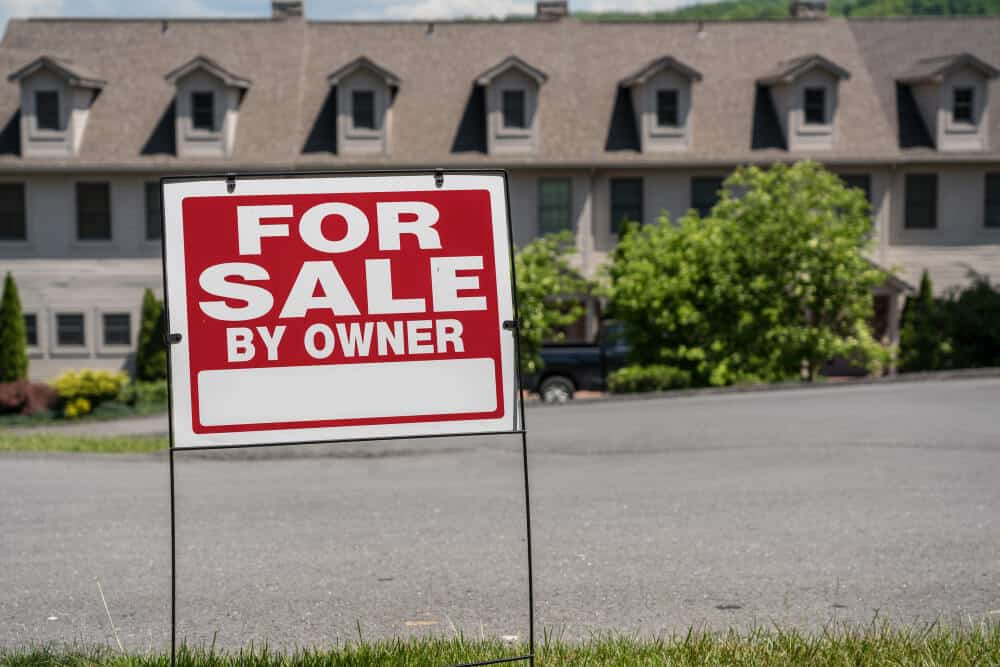
FSBO (For Sale By Owner)
Some sellers initially do not see the value in a real estate agent’s services. They decide to list their home as “for sale by owner,” or FSBO, so that they can have more control over the process and save the commission.
However, FSBOs generally sit on the market for longer periods of time than agent-listed homes. This may be because of inadequate marketing or a variety of other issues. When a FSBO property has been on the market for a month or two, the seller may become anxious and more willing to consider other options.
Prospecting to FSBOs is most commonly done by phone, but it may also be done in person by knocking on the door or by mail. To be successful with this endeavor, you must clearly highlight your skills and experiences. The seller must be able to see the value that your skills and services provide.
Pros
- Sellers are actively trying to sell their homes
- Sellers may be frustrated and ready to try a different approach
- Sellers may be ready to list with you immediately
Cons
- Sellers may not see the value in a real estate agent’s services
- Sellers may be opposed to paying a real estate agent’s commission
Who Should Prospect to FSBOs?
When you prospect to FSBOs, you may initially be reaching out to uninterested or even hostile parties who were not originally interested in agent representation. Agents who find success prospecting to FSBOs are able to successfully identify and overcome objections with winning propositions.
They also have an exceptional level of self-confidence and are willing to convey that sense of confidence to others. Because there is no cost associated with prospecting to FSBOs, this is a good option for real estate agents with a tight marketing budget.

Cold Calling
An alternative to a door-knocking campaign is cold calling. You can obtain homeowners’ phone numbers in a variety of ways, such as by buying a list or by researching phone numbers on your own.
Once you have a list, you can proceed at your own pace by making anywhere from a few to dozens of phone calls each day. You should have a script prepared so that you can make the biggest impact with each person you speak with.
Many people are not receptive to strangers calling them and trying to solicit their business. However, if you connect with individuals who may be interested in selling their home soon, you may find yourself caught in a deep conversation, showcasing your market knowledge and even lining up an in-person meeting. You should be prepared to work hard to find a great lead amidst many rejections.
Pros
- Requires minimal financial investment
- Provides you with direct interaction with potential leads
- Enables you to start building a relationship immediately
Cons
- Exposes you to many rejections
- Takes a considerable amount of time
Who Should Cold Call?
Because there is no cost associated with cold calling unless you buy a phone list, this is an ideal marketing opportunity for real estate agents who need or want to keep marketing expenses to a minimum. It can be tough to deal with frequent rejections, so the most successful callers are those who can remain poised and confident on each call.

Host or Sponsor Local Events
If you are searching for a great way to get the word out about your services and to be seen by many people at once, sponsoring or hosting a local event is a solid option to consider. Think about summer events, charity fun runs, blood drives and other events that serve a beneficial purpose in the community.
Often, a sponsor or host will provide at least a portion of the funding for the event. A host may also play a major role in organizing the event. In exchange, you may be able to market your services directly on the event’s marketing materials. Depending on the event, you may also be able to host a booth, hand out marketing materials and meet potential clients directly.
The cost of hosting or sponsoring an event is not the only expense. You should also consider investing in promotional gear or swag. This may be something as simple as a pen with your name on it or a branded market datasheet. It may be something much larger, such as a stress ball, a branded plastic cup or something that individuals may be more likely to keep around for a longer period of time.
Pros
- Builds brand recognition
- Showcases you as an active member of the community
- Enables you to meet potential leads in person
Cons
- Can be expensive
- May be too busy to establish many direct relationships
Who Should Sponsor or Host Local Events?
Because of the cost associated with hosting or sponsoring a local event, this is not usually an option that new real estate agents with a limited marketing budget pursue. Instead, it may be a great option to build your brand after you have already gotten the ball rolling with more affordable or free marketing options.
Because you may meet many people while sponsoring or hosting an event, it is important to stay organized and to remain personable throughout the entire event.

Contests
People love to enter contests, and they love winning prizes even more. Some real estate agents have held successful contests, such as through social media or even at special community events. A local event or social media contest may simply require an individual to provide his or her contact information and be willing to receive market data information for entry into the contest.
Because of this, contests are a great way to build your farm list and to raise awareness for your brand and services. The number of direct leads that you obtain from a contest, however, may be minimal.
In order for a contest to be successful, you must give away a prize that your target audience that has real value, such as a gift card at a home improvement store or a free house cleaning session.
In addition, the contestants should find value in what they are signing up for. For example, it is more effective to sign them up for a newsletter or quarterly market data than to simply say they are opting into your mailing list.
Pros
- Helps you to build your marketing list
- Builds brand recognition
- Generates excitement in the community
Cons
- The cost of prizes can be expensive
- May generate few direct leads
Who Should Use a Contest?
A contest generally requires minimal time and effort to put together. Furthermore, the cost of the prize is determined at your discretion. With these factors in mind, a contest is a great marketing option for real estate agents who want to build an opted-in mailing list with the investment of only a little time, effort and money.
Because this marketing method is mostly used to build a list, it is often a precursor for a direct mail or email campaign.

Networking
Networking is the name of the game in the real estate industry. Almost everyone who you meet will be a homeowner, dreams of being a homeowner or knows someone who could need your services. Even those who are not actively ready to jump in the market may be curious about market updates and would love to pick your brain.
You may find yourself with opportunities to meet new people every day, such as at the dog park, in a doctor’s office or even while standing in line at the grocery store. You could also put yourself in new situations to meet strangers, such as by volunteering, attending community events and being active in other ways.
When you put yourself in more social situations, you will inevitably meet plenty of people. Then, you simply have to bring the subject of real estate up to get the conversation moving in the right direction.
Pros
- Can be done at no cost
- Provides a great opportunity to build relationships
- Enables you to demonstrate expertise upfront
Cons
- Can be challenging to make new introductions
Who Should Use Networking?
Networking is essential for the success of all real estate agents. In fact, it is so important to establish new relationships regularly that you should make a solid effort each day to put yourself in social situations where the topic of real estate can easily be brought up.
Conclusion
Listings play a critical role in the success of a real estate agent, but finding listings can prove to be challenging. You can see that there are many opportunities available to both new and established real estate agents to make new connections and to solidify established connections. As you create or update your marketing plan, keep these strategies to get more listings in mind.
